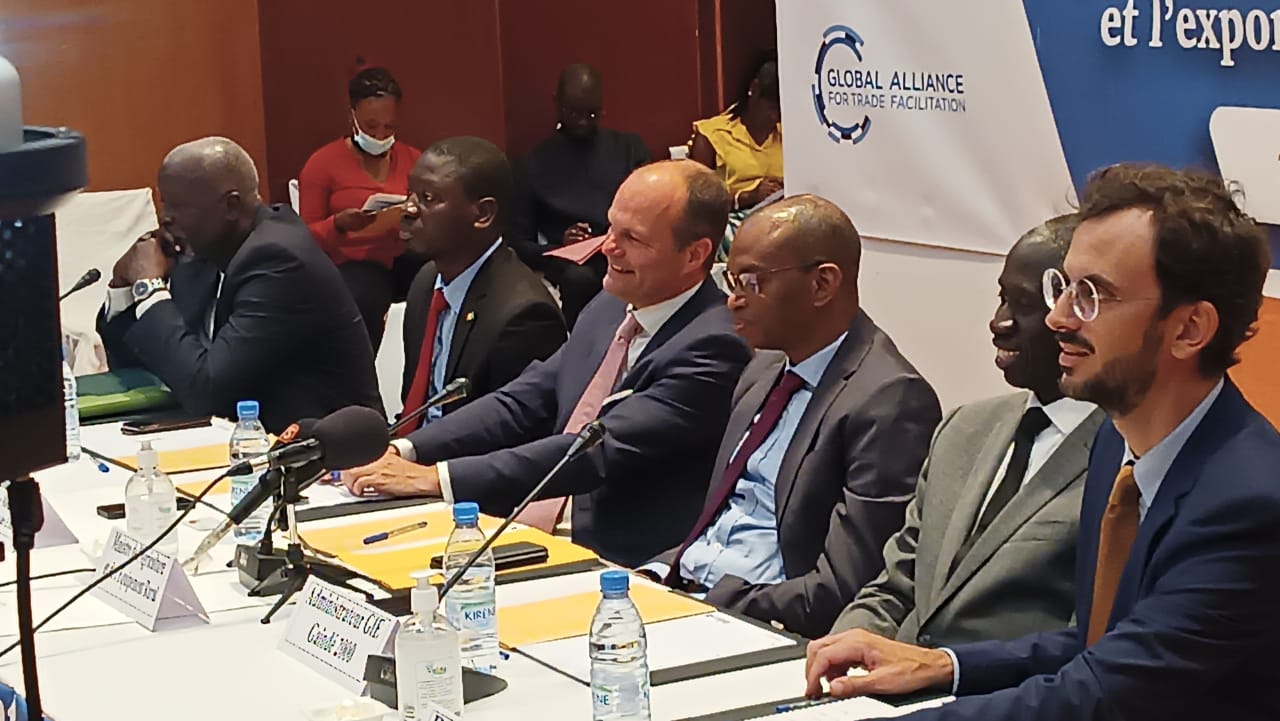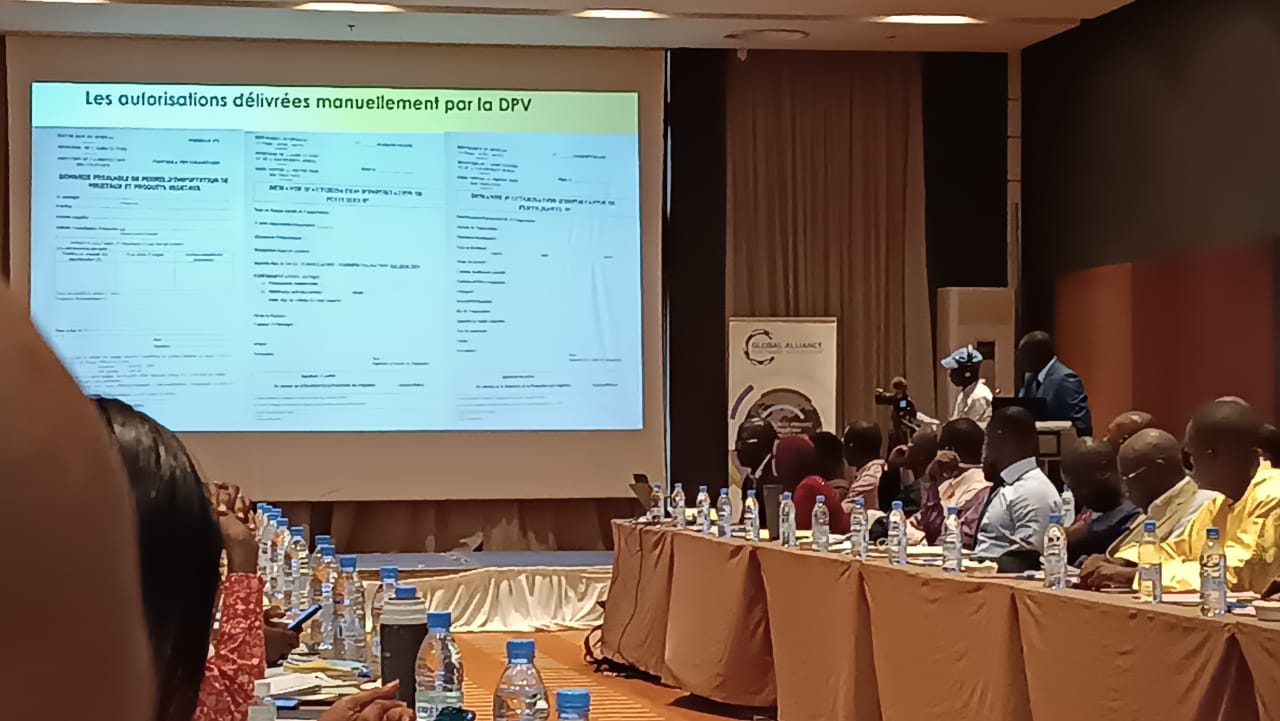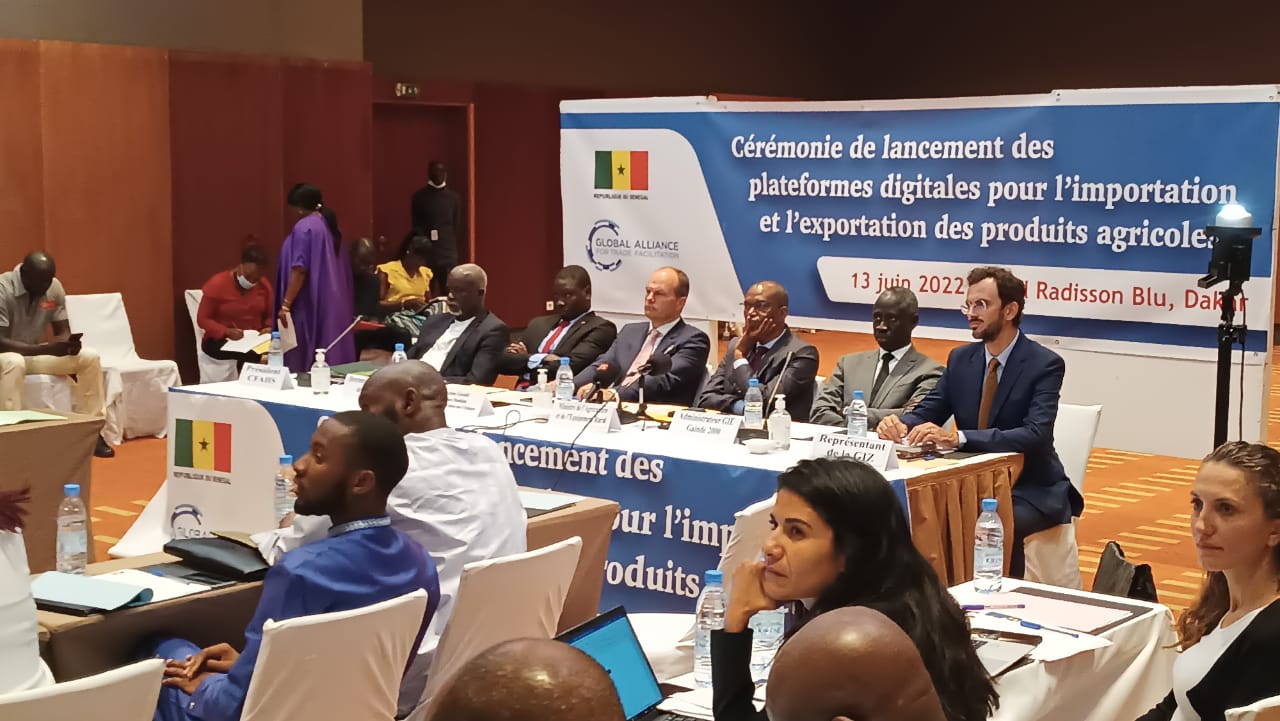Senegal traders can expect to save time and money by using two new digital platforms – the first for obtaining import permits for seeds and plants and the second for producing, receiving, and exchanging electronic phytosanitary certificates, or ePhytos, for exporting plants and plant products.

The Government of Senegal, through the Department of Plant Protection (DPV), and supported by the Global Alliance for Trade Facilitation (the Alliance) have been working on both initiatives to digitalise imports and exports of agricultural products.
A critical milestone was reached on 13 June 2022 when the Minister of Agriculture and Rural Infrastructure, Moussa Baldé, officially launched both platforms.
“I commend the spirit of collaboration that prevailed between the public and private sectors and the Alliance during the formulation phase of the import and export platform digitalisation projects,” Mr. Baldé said. “Using these platforms presents a significant change for stakeholders. Therefore, the private sector as the main beneficiary has been involved in the pilot groups that tested them. Now it is time to put them into practice.”
 Previously, traders have had to visit a DPV office in person to apply for an import permit for importing seeds and plants, a time-consuming and costly process. The new platform means applications can now be completed online.
Previously, traders have had to visit a DPV office in person to apply for an import permit for importing seeds and plants, a time-consuming and costly process. The new platform means applications can now be completed online.
Separately, Senegal traders also stand to benefit from the digitalisation of the phytosanitary certificates required for agricultural exports by implementing the International Plant Protection Convention (IPPC) ePhyto Solution, enabling the exchange of ePhytos with a growing number of countries, quickly, accurately, and at low cost.
Senegal has adopted the IPPC Generic ePhyto National System (GeNS), a web-based application that allows countries to connect to the IPPC Hub, enabling the production, receipt, and exchange of electronic phytosanitary certificates with trading partners.
Based on interviews with exporters and the DPV, by switching to ePhytos, traders can expect to spend up to 50% less time in obtaining the necessary phytosanitary certification. This process typically takes three days at present.
Over the last months, DPV officers have been trained on the use of the new platforms and more than 80 companies have also received specific training. Senegal progresses to full introduction of the new system.
The new imports platform will benefit agri-food producers who rely heavily on imported seeds to grow many export crops, such as onions, orange sweet potatoes, cherry tomatoes, and potatoes.
Meanwhile, food exporters in a market dominated by micro, small, and medium-sized enterprises (MSMEs) can anticipate time and cost savings by switching to GeNS.

In some cases, producers will be able to take full advantage of both new digital platforms, as many of them are heavily reliant on imported seeds to grow foods for export markets.
Both projects will benefit them by simplifying both import and export procedures. They will also contribute to Senegal implementing its commitments under the World Trade Organization’s Trade Facilitation Agreement.
“I commend the approach of the Alliance, which has involved the private sector in the design and implementation of these projects that will have a positive impact on the competitiveness of agricultural enterprises,” said Cheikh Ngane, President of the Federative Confederation of Horticulture Stakeholders (CFAHS). “On behalf of the private sector, I am committed to making these digital tools a factor in the development of Senegalese agriculture.”
“The launch of these two solutions reflects a determination to overcome many complex and difficult challenges to reach a successful conclusion,” said Philippe Isler, the Alliance’s Director, who attended the launch in person. “Digitalisation strengthens Senegal’s vital agri-food sector and improves business conditions for the many people whose livelihoods depend on it.
